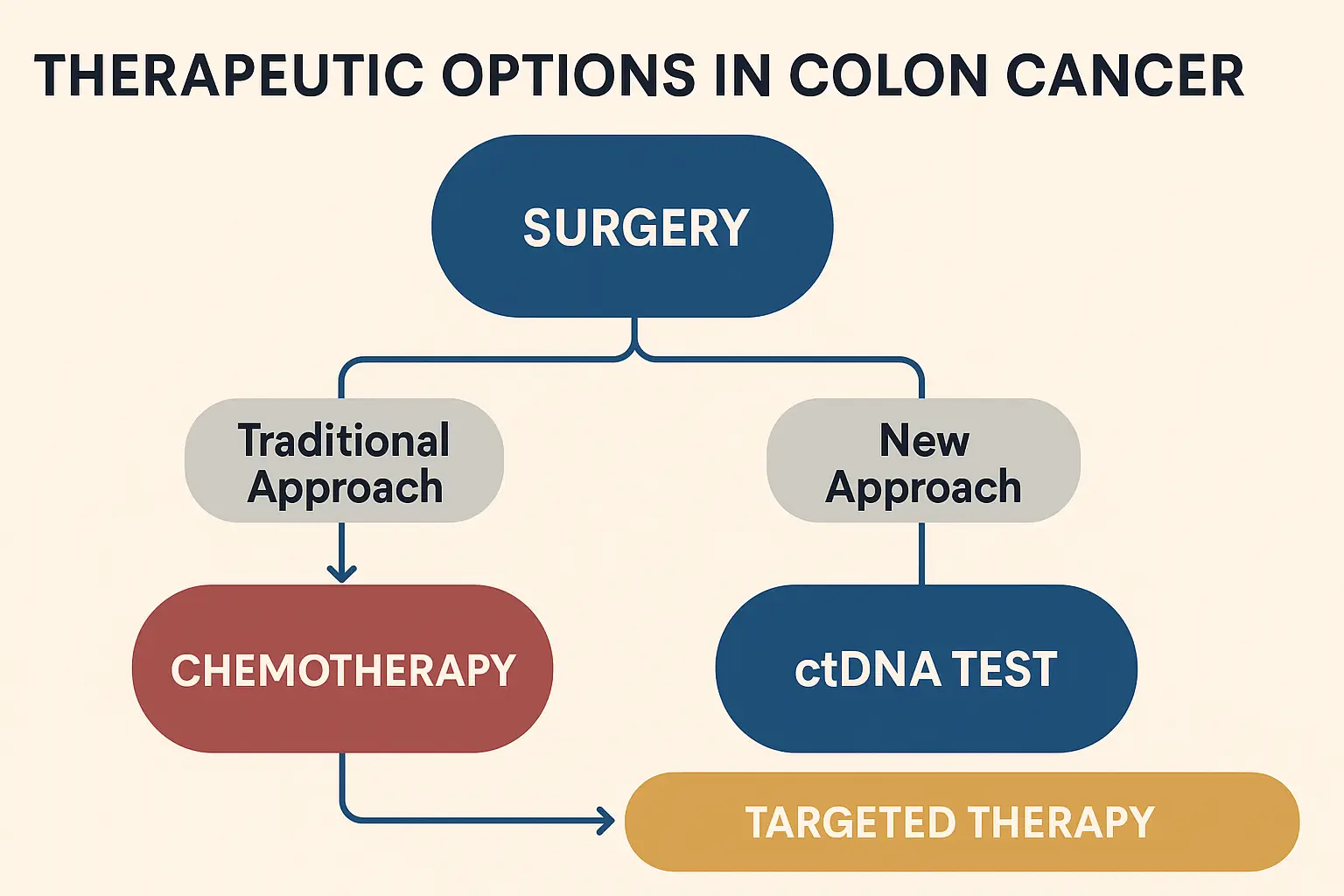
Treatment for colon cancer (colorectal cancer) is undergoing a major transformation. Once dominated by surgery, chemotherapy, and radiation, the field has now expanded into immunotherapy, targeted therapy, and precision medicine guided by genetic and molecular insights. In 2025, several breakthrough clinical trials have set the stage for a new era in colorectal cancer care.
Immunotherapy: A Game-Changer for MSI-High Tumors
- MSI-High (Microsatellite Instability-High) and dMMR (deficient DNA mismatch repair) tumors respond exceptionally well to immunotherapy.
- The ipilimumab + nivolumab combination is now approved as first-line treatment for advanced MSI-High colon cancers.
- Studies show durable responses, with many patients experiencing long-term remission.
This marks a paradigm shift: for the right patients, chemotherapy is no longer the first choice.
Targeted Therapy: Precision Against Mutations
- The BREAKWATER trial (2025) confirmed that combining encorafenib + cetuximab + mFOLFOX6 significantly improves survival in BRAF V600E–mutant metastatic colorectal cancer.
- EGFR inhibitors (cetuximab, panitumumab) continue to benefit patients with RAS wild-type tumors, but resistance remains a challenge.
- Ongoing research focuses on HER2-positive colon cancers, with promising results from anti-HER2 agents in clinical trials.
ctDNA: Guiding Post-Surgery Decisions
- Traditionally, many stage II and III colon cancer patients receive chemotherapy after surgery.
- ctDNA (circulating tumor DNA) tests now help decide who really needs chemotherapy.
- The DYNAMIC-III trial demonstrated that patients without ctDNA after surgery can safely avoid chemotherapy—reducing toxicity without compromising outcomes.
This approach is now being integrated into treatment planning worldwide.
Novel Combinations & Ongoing Trials
- ATOMIC Trial: Showed that adding atezolizumab (Tecentriq) to chemotherapy reduced recurrence risk by almost 50% in stage III dMMR colon cancer.
- TRIPLETE Trial: Testing intensified chemotherapy combinations for higher response rates.
- Next-generation immunotherapies (bispecific antibodies, CAR-T like approaches) are in early-stage trials for metastatic CRC.
Challenges That Remain
- Tumor heterogeneity means not all patients respond equally to new therapies.
- Resistance mechanisms often develop with targeted therapy.
- High costs and accessibility remain barriers, especially in developing nations like India.
Conclusion
The year 2025 represents a turning point in colon cancer therapy. With immunotherapy, targeted agents, and ctDNA-guided strategies, patients now have more personalized, effective, and less toxic treatment options.
For expert evaluation and access to advanced treatments, Dr. Rajeev Kapoor, a leading colorectal cancer surgeon in Mohali, India, offers comprehensive care—combining surgical expertise with the latest in targeted and immunotherapy approaches.

